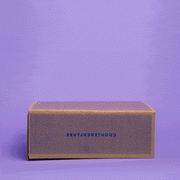-
Luis manages the family farm, "Finca Huayhua," with his wife and two children. An expert in coffee farming and processing, Luis often shares his knowledge with nearby farmers, and his passion for excellence is not only contagious, but evident in his farm. Luis has approximately 10 hectares of property total, of which about 5.5 hectares are used for coffee cultivation. There is a lot of ecological diversity on the property, including many species of shade trees towering over the coffee plants as well as agricultural vegetation for family consumption. The farm's coffee trees are between 10- and 25-years-old, but are well cared for and the use of organic compost supplements nutrient rich soil.
Bolivia is a notoriously difficult place to buy and export high-quality coffee. One of the biggest challenges is the transportation of coffee. From the farm, to the dry mill, to shipping in a timely fashion—and at the right humidity level—getting this coffee to us is no small matter.
Those who know and love Bolivian coffees from this region know of the challenges of trucking up the mountains on the "Death Road of Coroico" to the dry, high-altitude city of El Alto. In recent years, the "Death Road" has been improved and an alternate route avoids the road altogether, but it still presents its own difficulties and very real risk to travelers.
We've purchased from the Central Asociados de Productores de Café (CENAPROC) cooperative in Bolivia since 2004, and, each year, we refine the process to get the best coffees. In some years, the harvest is entirely milled and dried on-farm, while in others, the central washing station and drying patio have been used. A continued shift away from the central mill was primarily the result of a lower harvest cycle that does not require the capacity and efficiency of a large mill. The cooperative continues to push standards for quality, drying coffee more consistently and checking moisture thresholds before coffee is sent to El Alto—the location of the dry mill and export warehouse. The co-op also works closely with a cupping lab in La Paz to sort through the many single-farmer lots to maintain quality. This work helps with coffee selection and addressing issues early in the season—setting the stage for better coffee and timely export.
CENAPROC was founded in 1992 and is one of the most-recognized cooperatives in the region. Currently, the cooperative has approximately 48 members that come from three main areas close to their wet mill in Caranavi: Nueva Llusta, Nueva Canaan, and Libertador. CENAPROC has won awards in the Bolivian Cup of Excellence competition numerous times since 2004.
-
Harvest
Process: Washed
Certifications: Organic, Kosher
Elevation: 1,750 meters
Variety: Caturra and Catuai
Harvest Time: June–October 2023
Available: Through late-June 2024
-
CENAPROC
Length of Partnership
1995 2004 202623 years
Location

-
We believe in paying more.
Since 2009, we have published an annual transparency report to serve as a blueprint for our green coffee purchasing practices and a response to chronically low prices in the coffee industry. We believe paying more for green coffee is an important investment in the long-term viability of our coffee-growing partners’ businesses and our supply.
$0 $5$4.85 FOB (Free on Board)/lb - Our price for Luis Huayhua
$2.33 FOB/lb - Fair Trade Certified Minimum
$1.65 FOB/lb - Average C Market Price
-
All of our coffees can be brewed in various ways, designed for your perfect morning. Try these recipes to highlight each coffee's flavor profile. Your brewing adventure starts here.
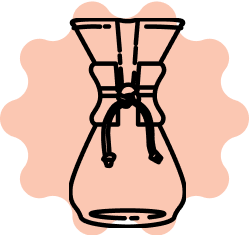
Chemex
Coffee: 45 grams
Grind: medium-coarse
Water: 750 grams of filtered hot water (200 F)
Ratio: 1:17
Time: 3:00 Min
Coffee: 45 grams
Grind: medium-coarse
Water: 750 grams of filtered hot water (200 F)
Ratio: 1:17
Time: 3:00 Min
VIEW FULL RECIPE
CLOSE RECIPE
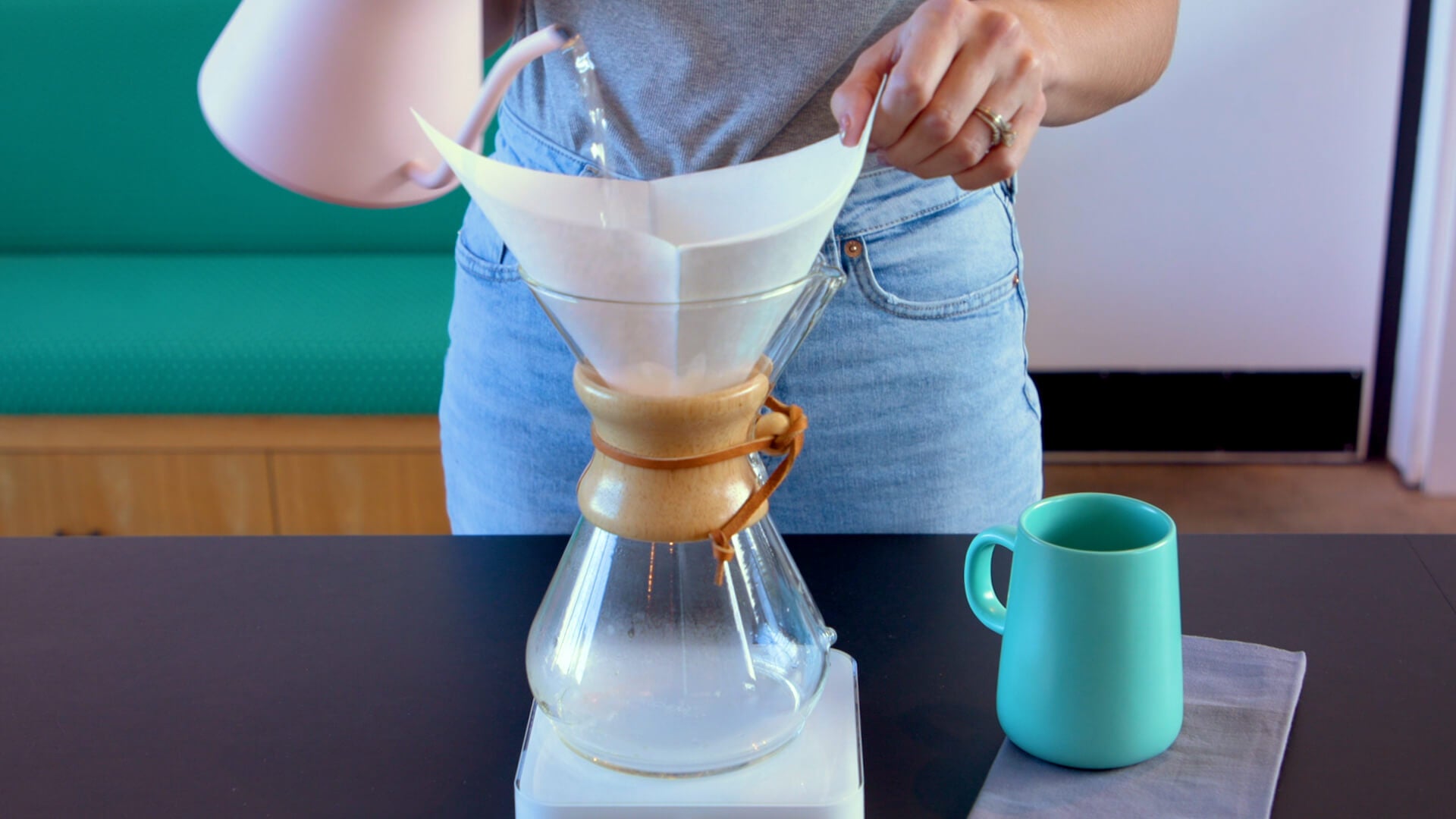
1: Rinse Filter
Place filter in Chemex and rinse with hot water, discarding when finished.
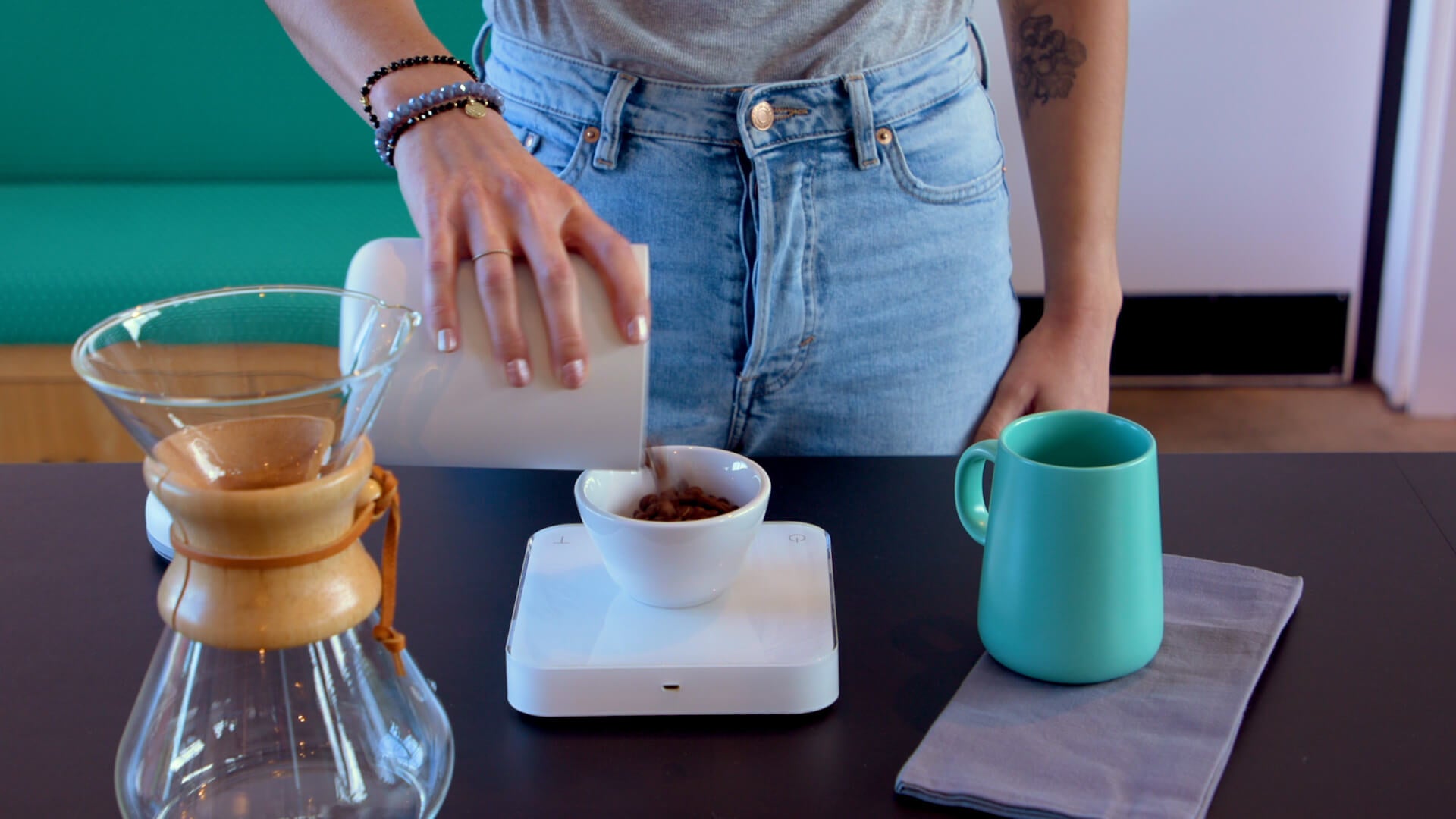
2: Weigh Coffee
Weigh 45g coffee and grind on medium-coarse setting, like kosher salt.
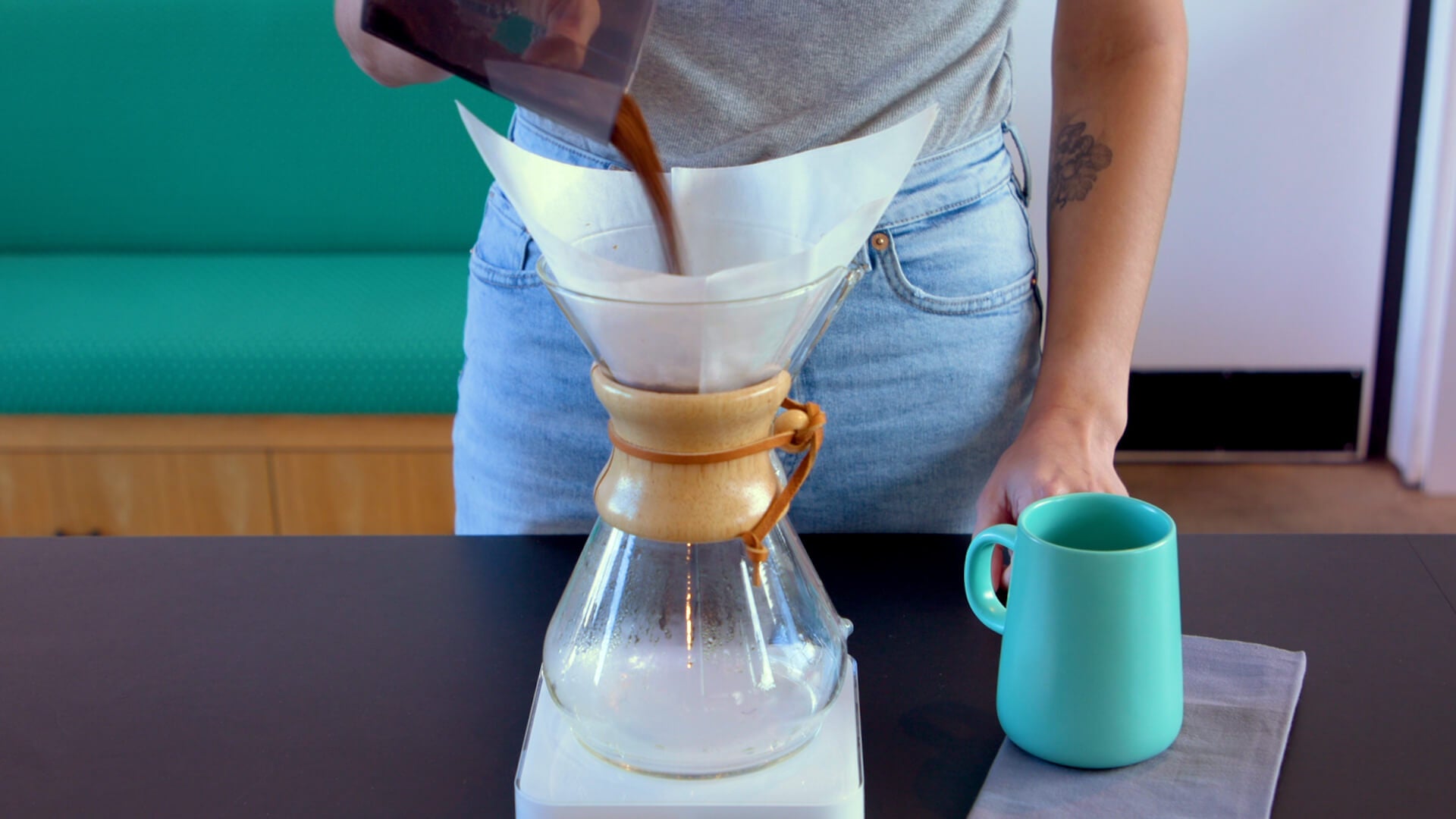
3: Add Coffee
Place ground coffee in filter, and shake to level.
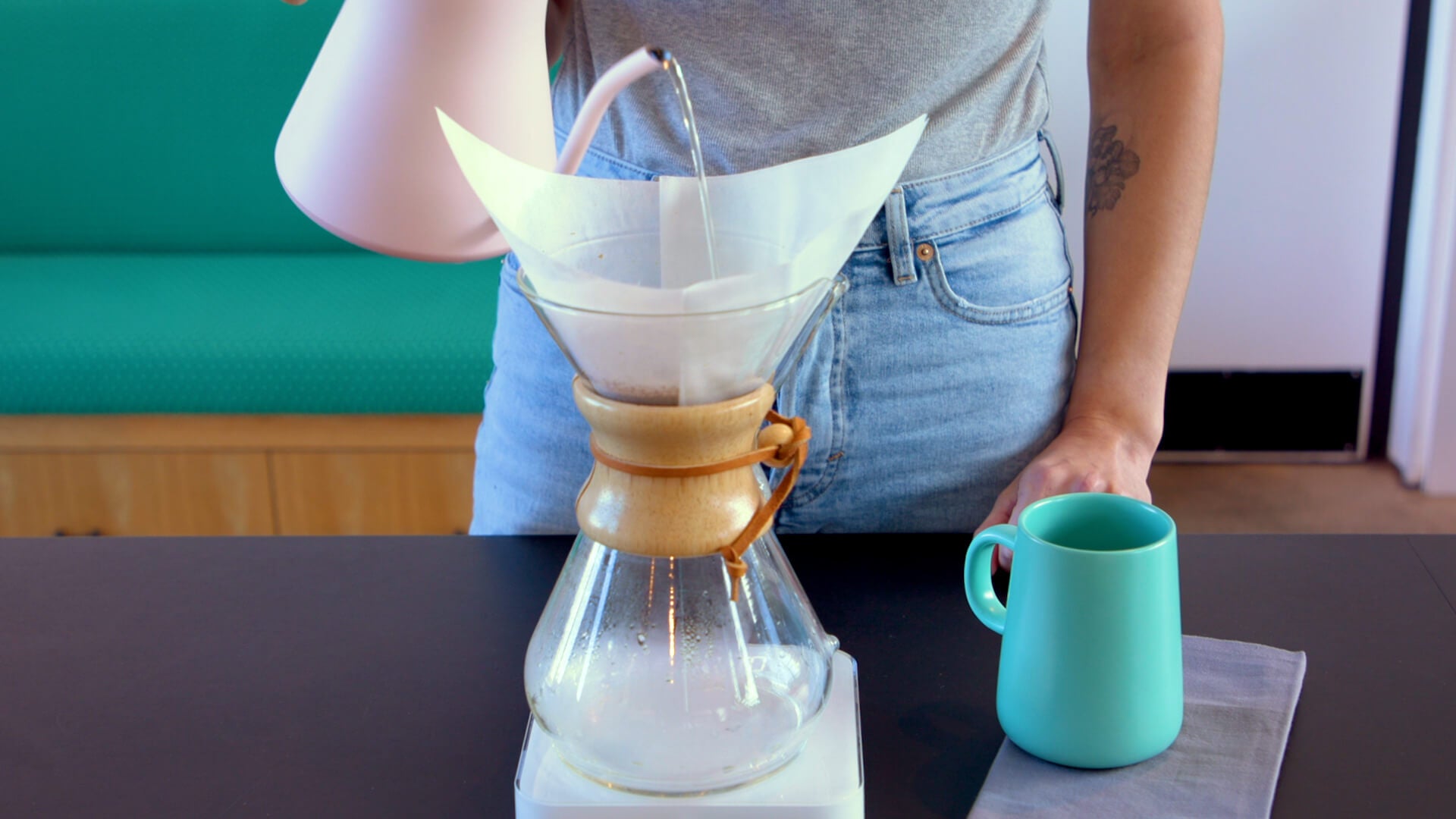
4: Bloom Coffee
Start a timer and add 100g of water to wet all the coffee grounds.
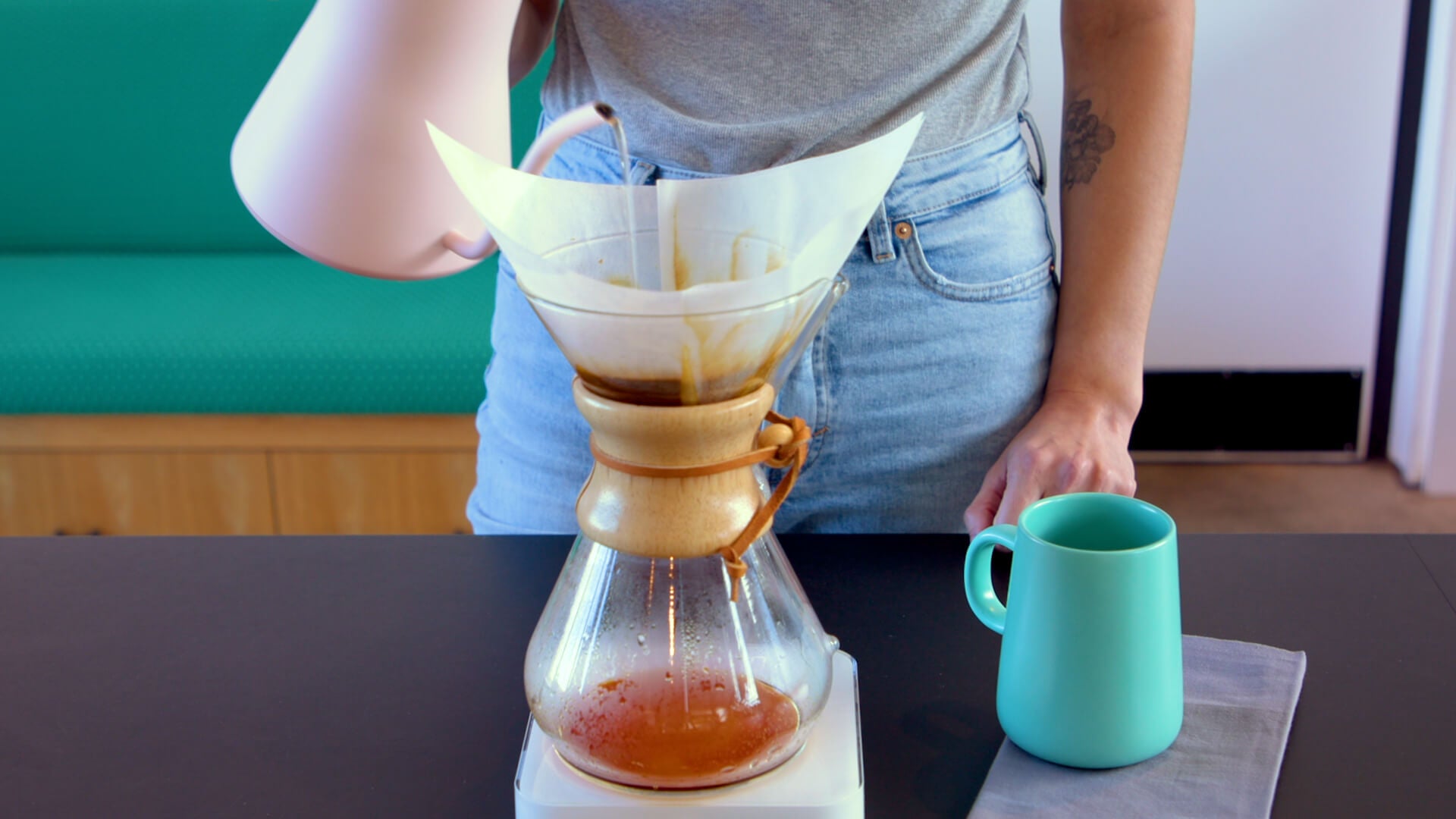
5: Begin Brewing
Wait 30 seconds and then pour water in a circular motion to 200g.
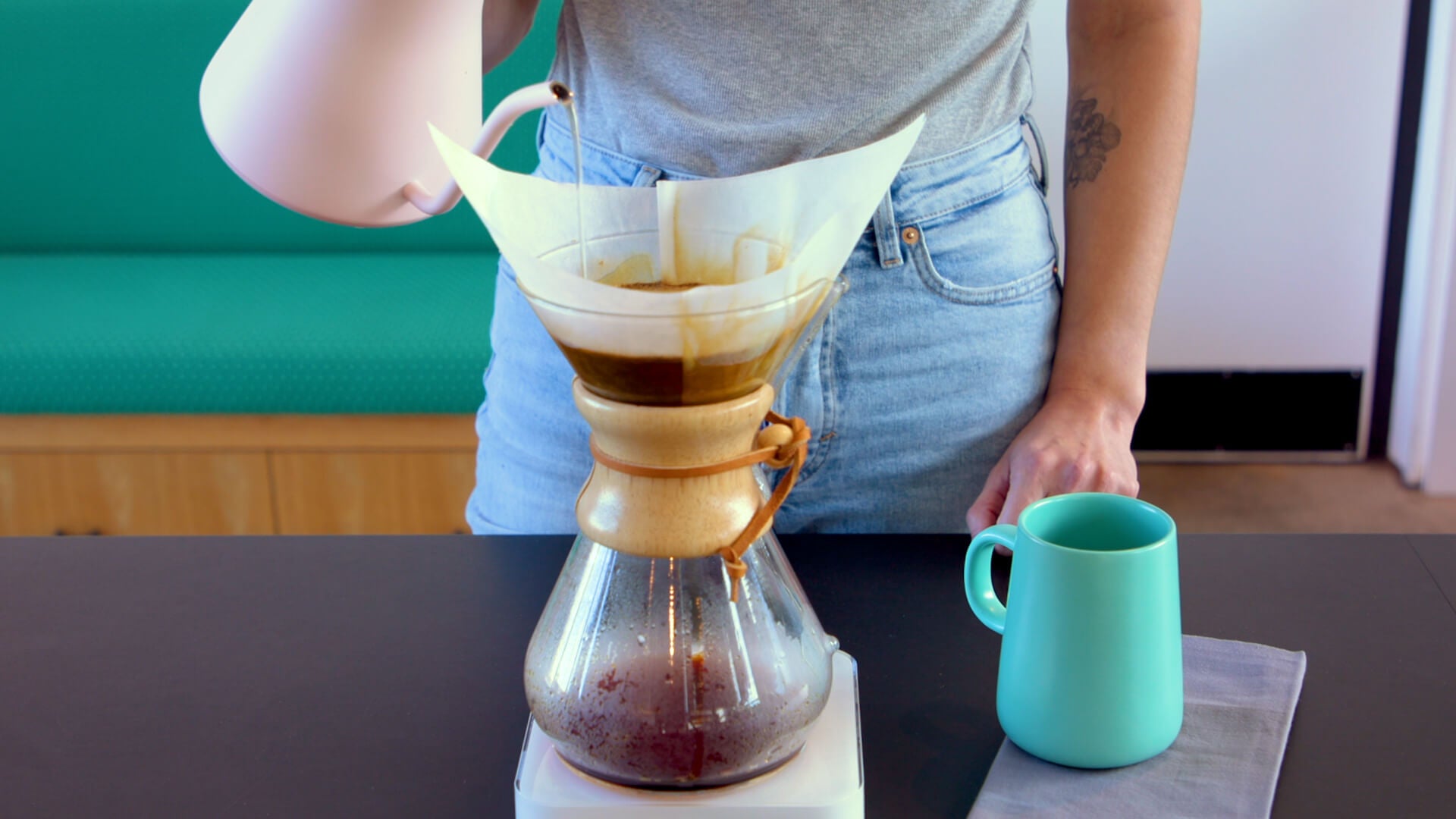
6: Pour Water
By 1:00 the water should have drained a centimeter, pour in a circular motion to 300g.
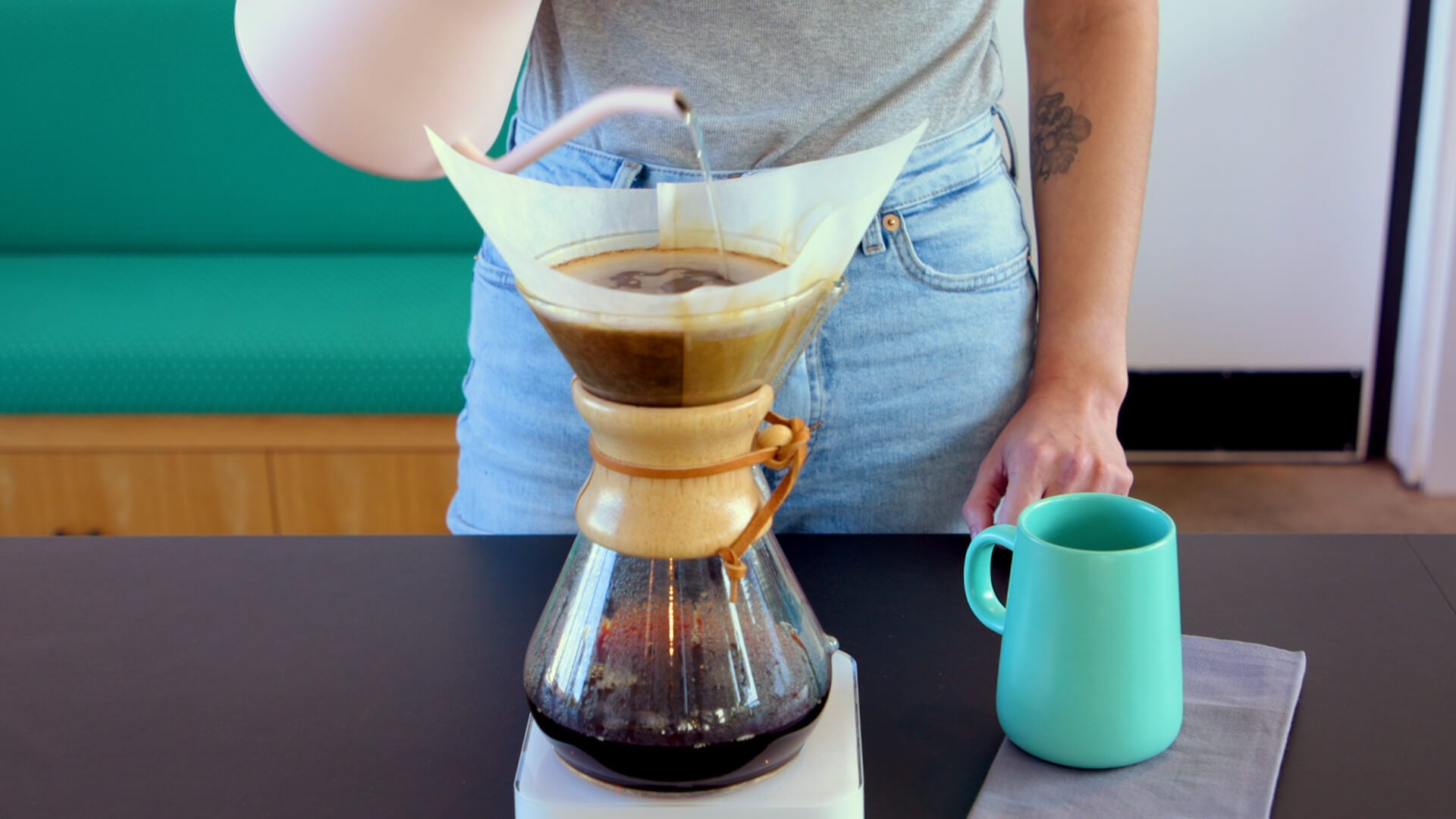
7: Repeat
Repeat this process every 30 seconds, or as the water drains a centimeter, pouring water in a circular pattern until reaching a total weight of 750g.
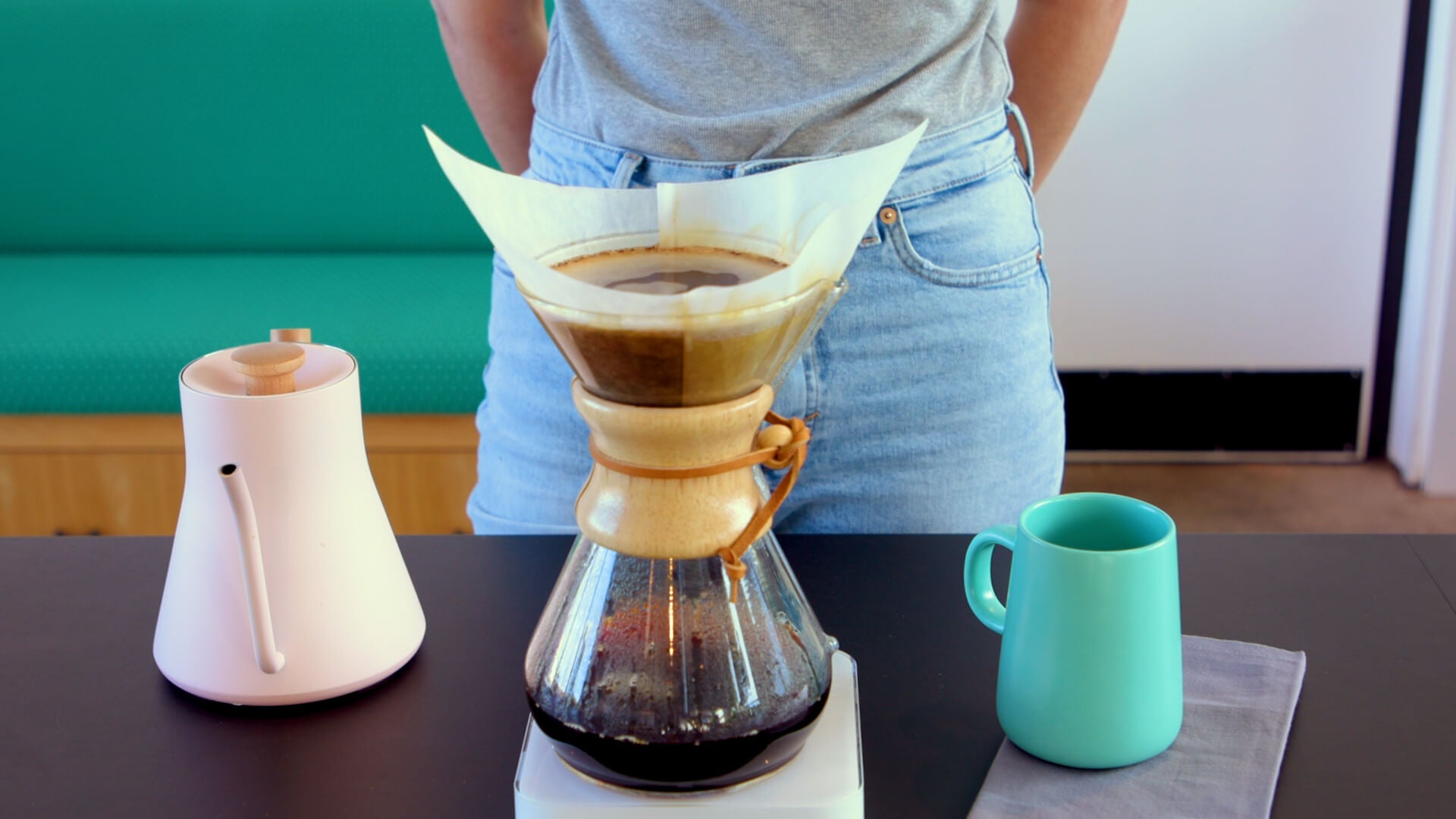
8: Drain
The coffee should finish draining by 4:00 - 5:00.
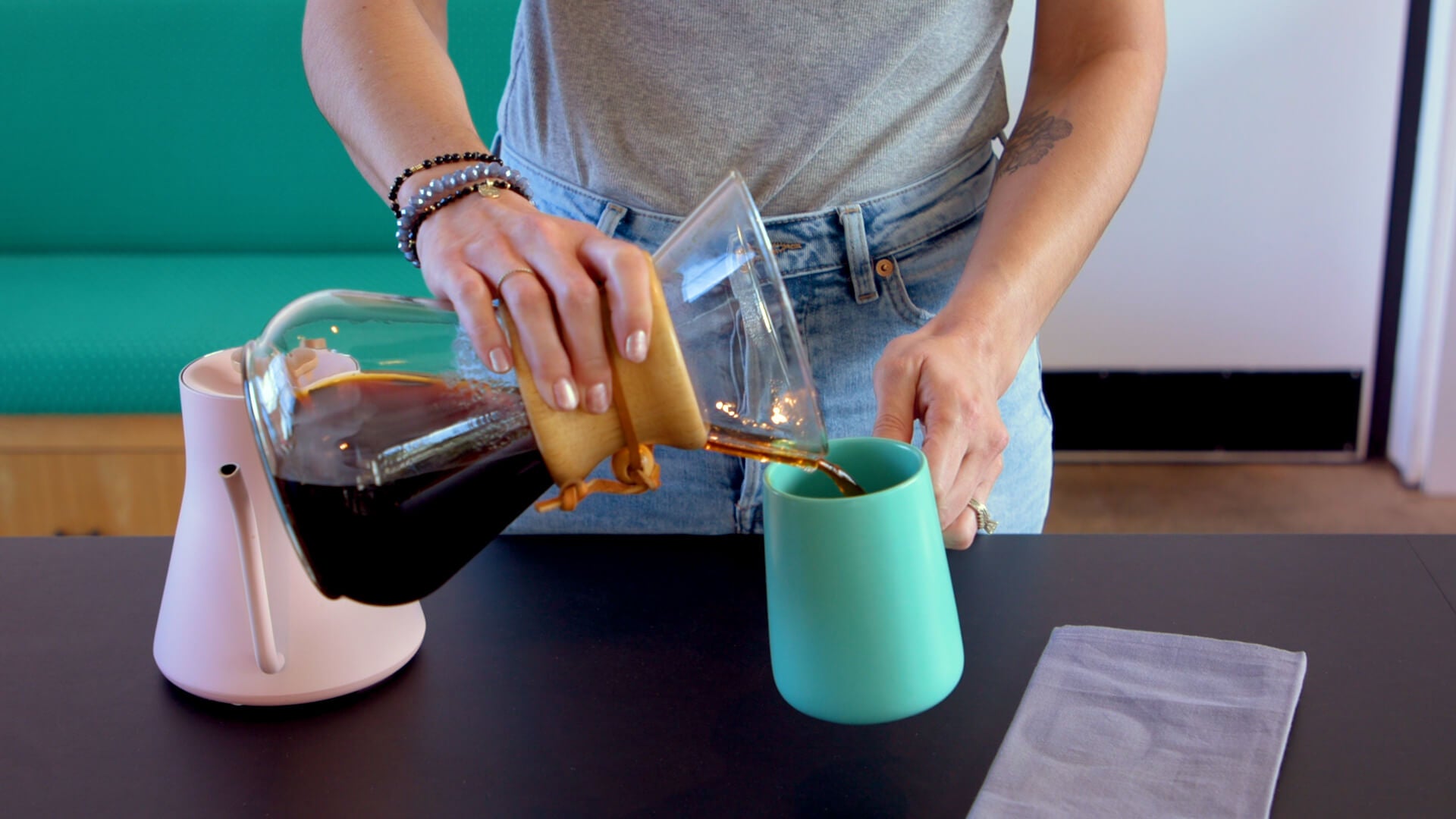
9: Enjoy!
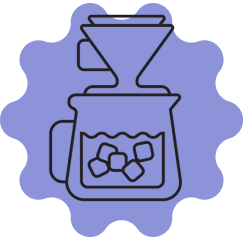
Flash Brew
Coffee: 30 Grams
Grind: medium-fine
Water: 335 grams of filtered hot water (200 F)
Ratio: 1:11
Time: 1:00 Min
Coffee: 30 Grams
Grind: medium-fine
Water: 335 grams of filtered hot water (200 F)
Ratio: 1:11
Time: 1:00 Min
VIEW FULL RECIPE
CLOSE RECIPE
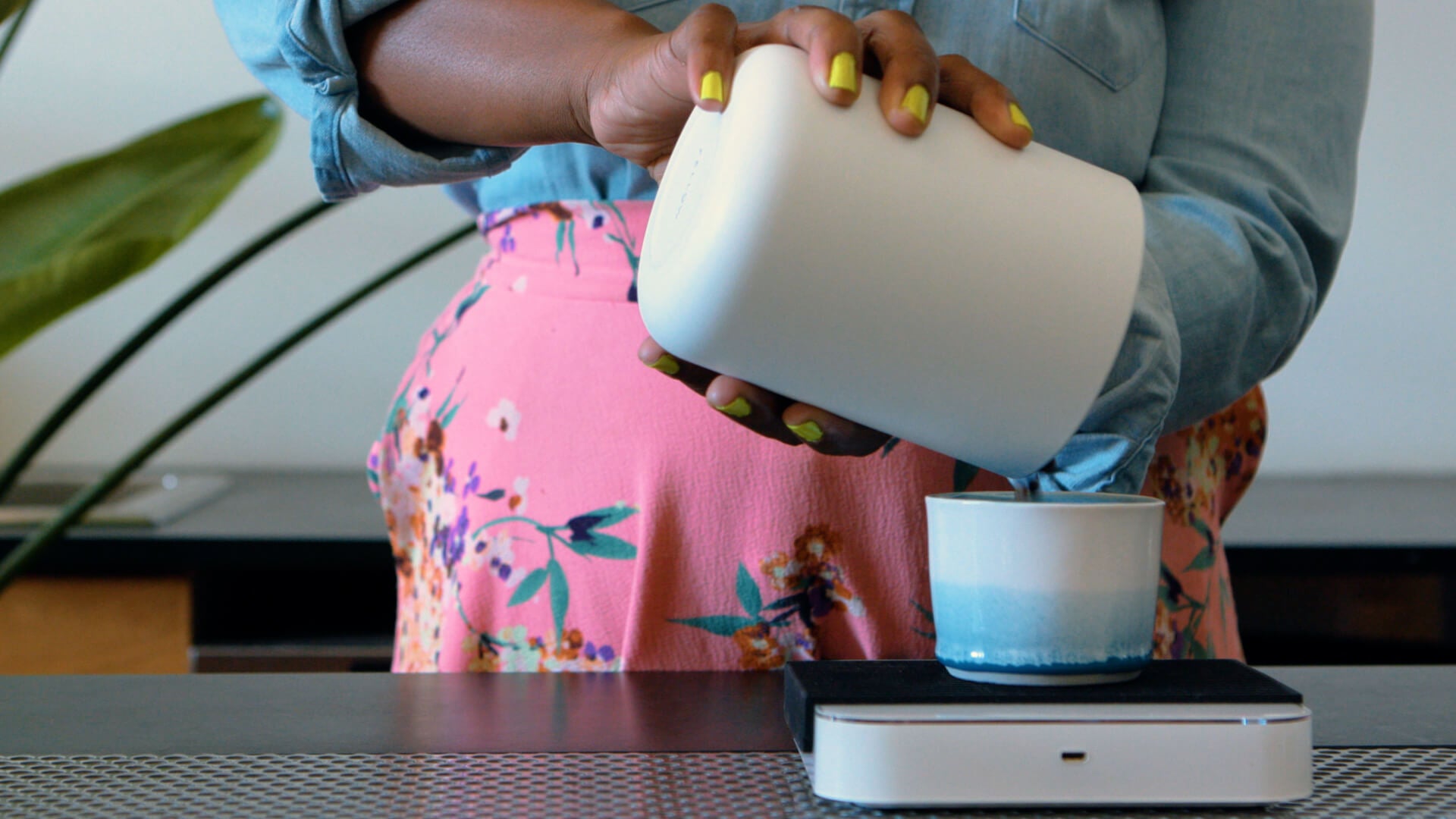
1: Weigh Coffee
Weigh 30g of coffee and grind on medium-fine setting, like table salt.
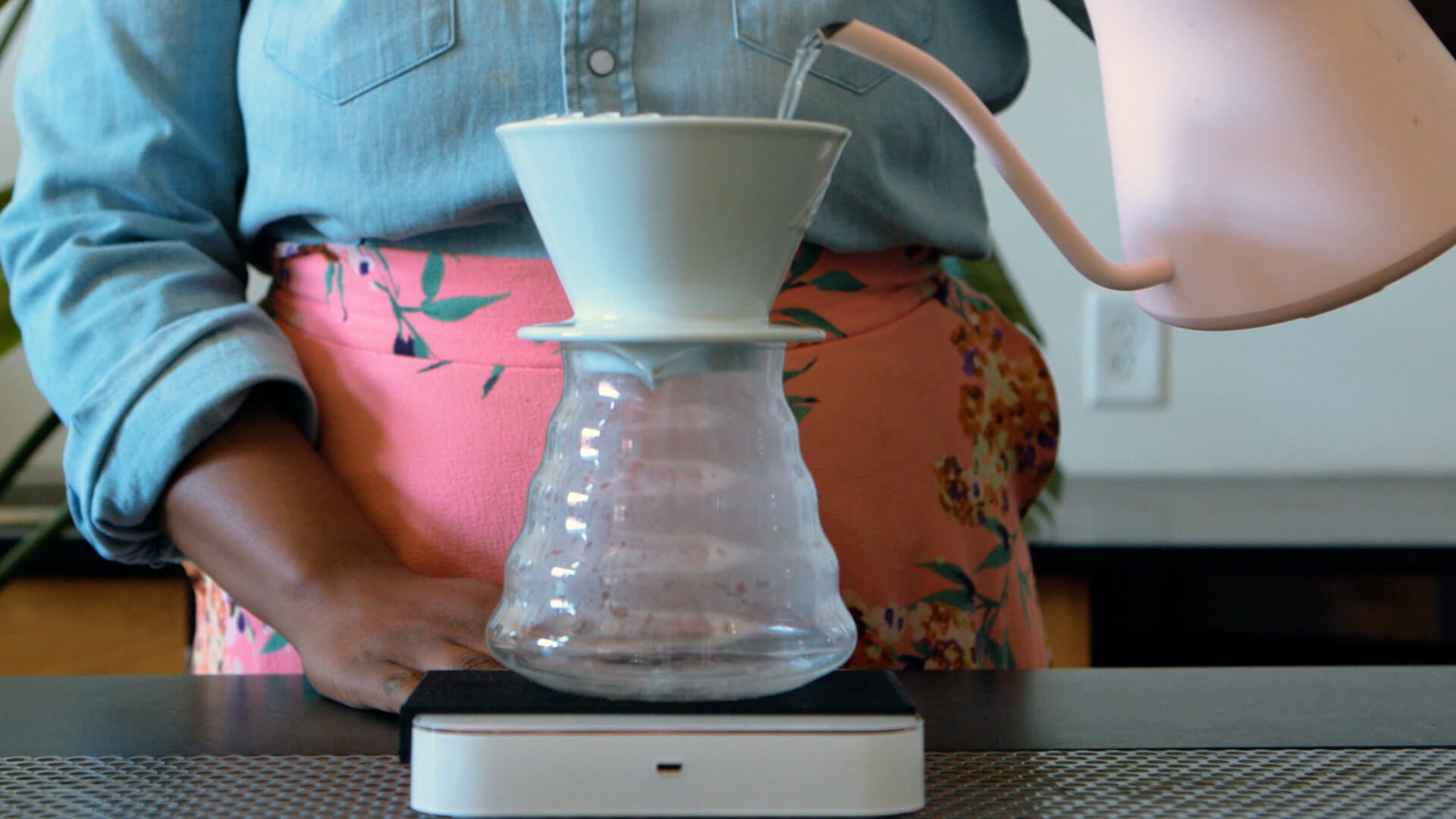
2: Rinse Filter
Heat water to 200ºF. Place filter in your pour-over device and rinse with hot water, discarding when finished.
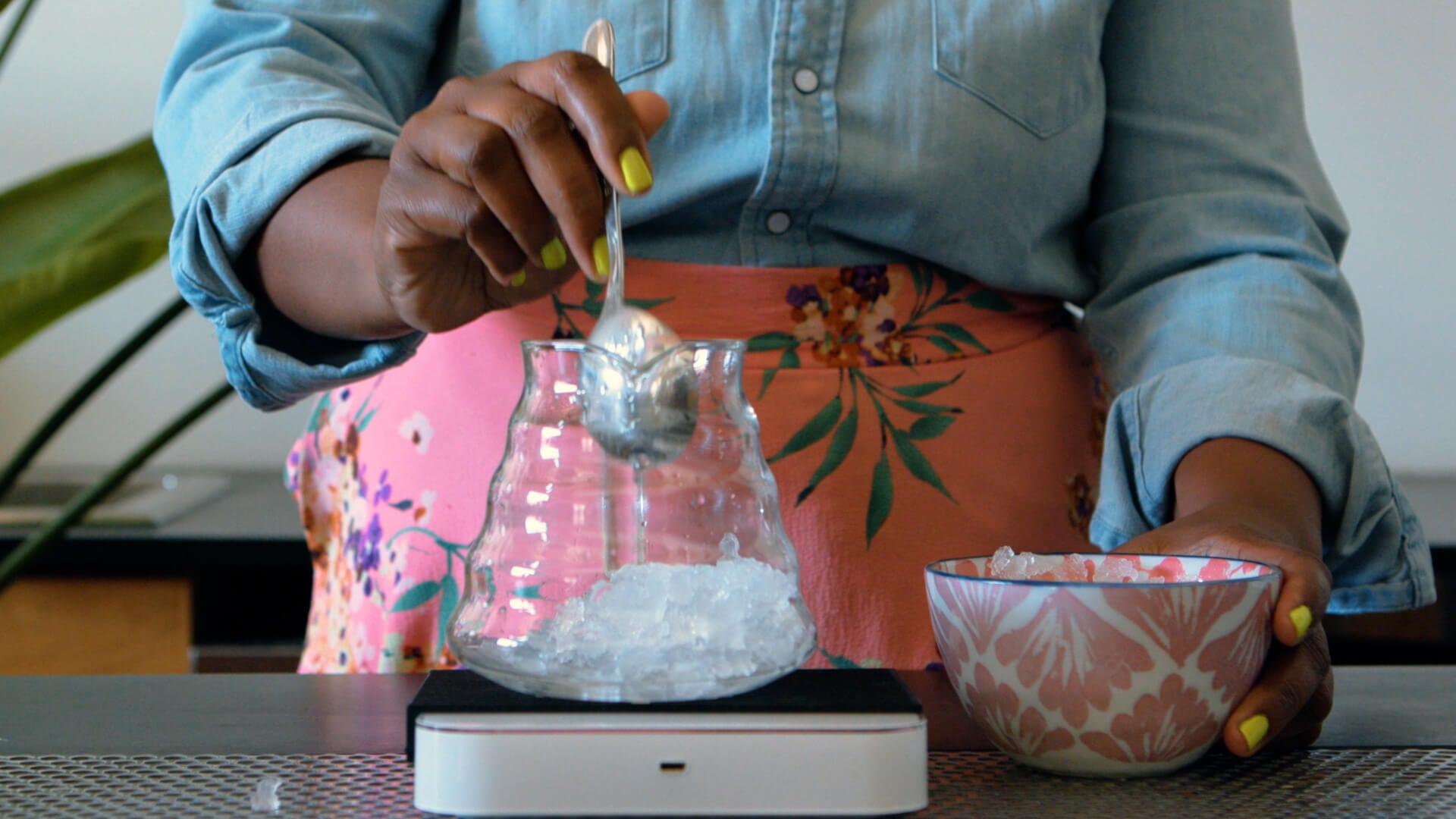
3: Add Ice
Add 165g of ice to your carafe.
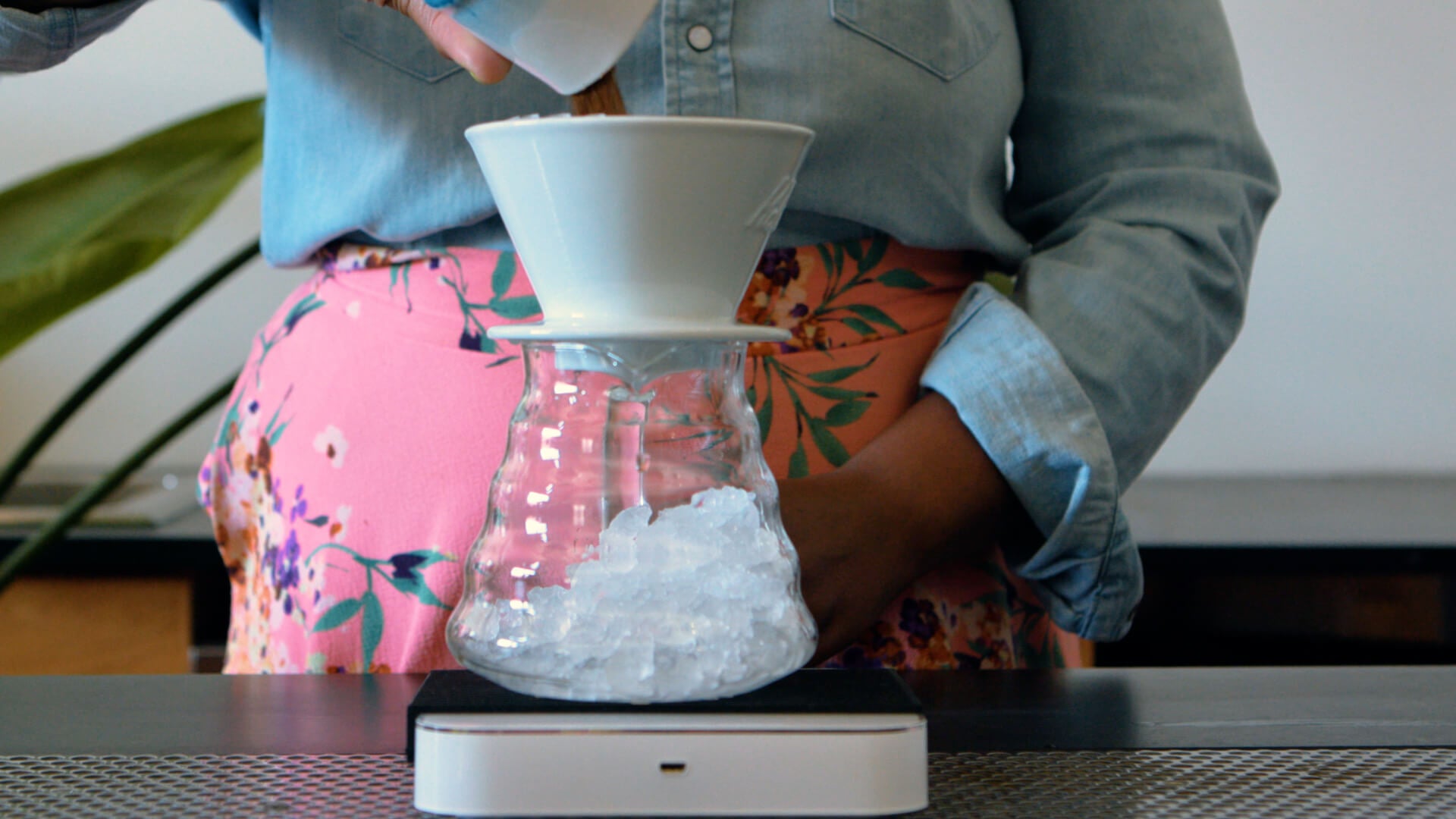
4: Add Coffee
Place the pour-over device back on your carafe, and add ground coffee.
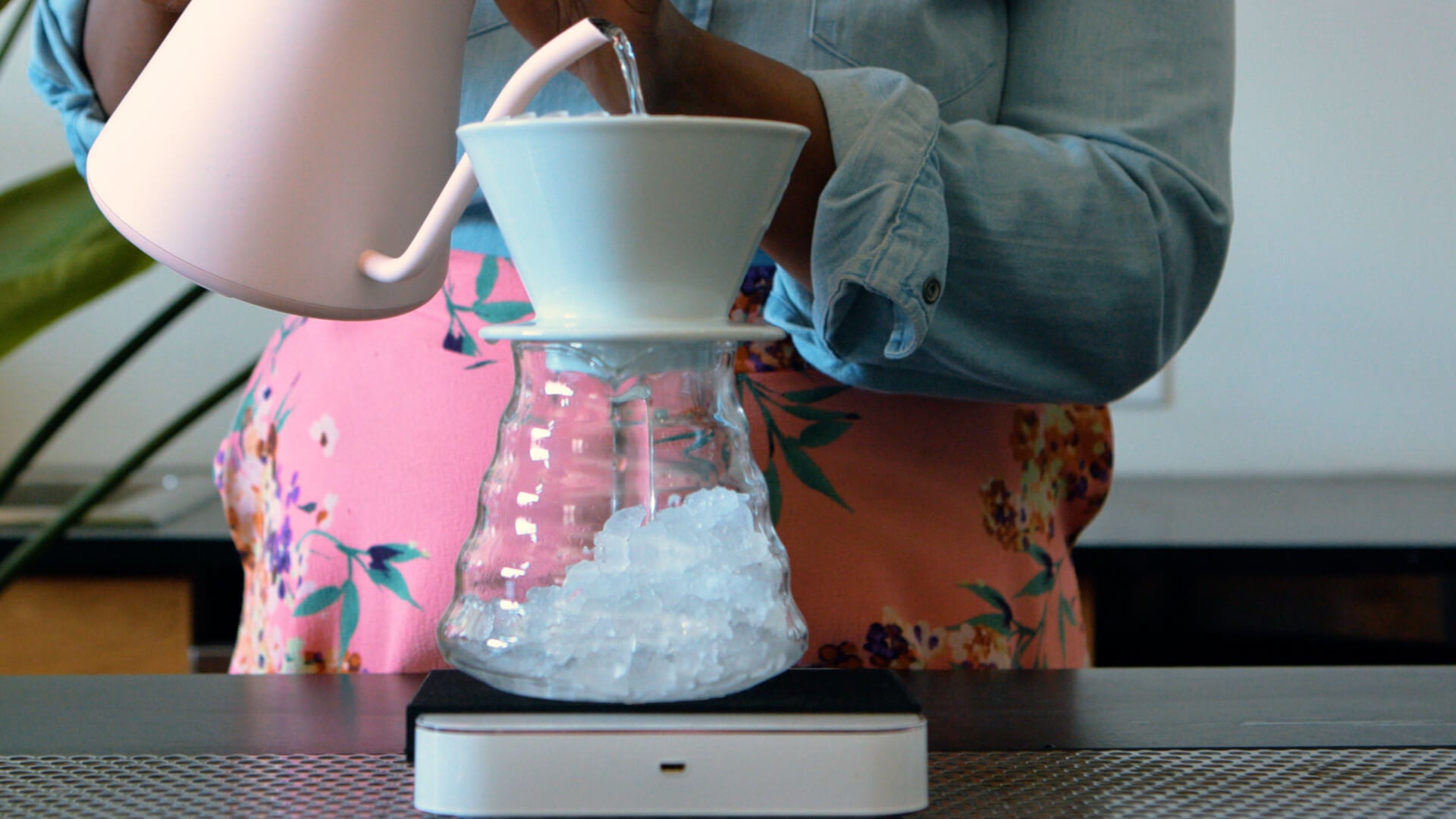
5: Bloom Coffee
Start a timer and pour 30g of water to wet all the coffee grounds.
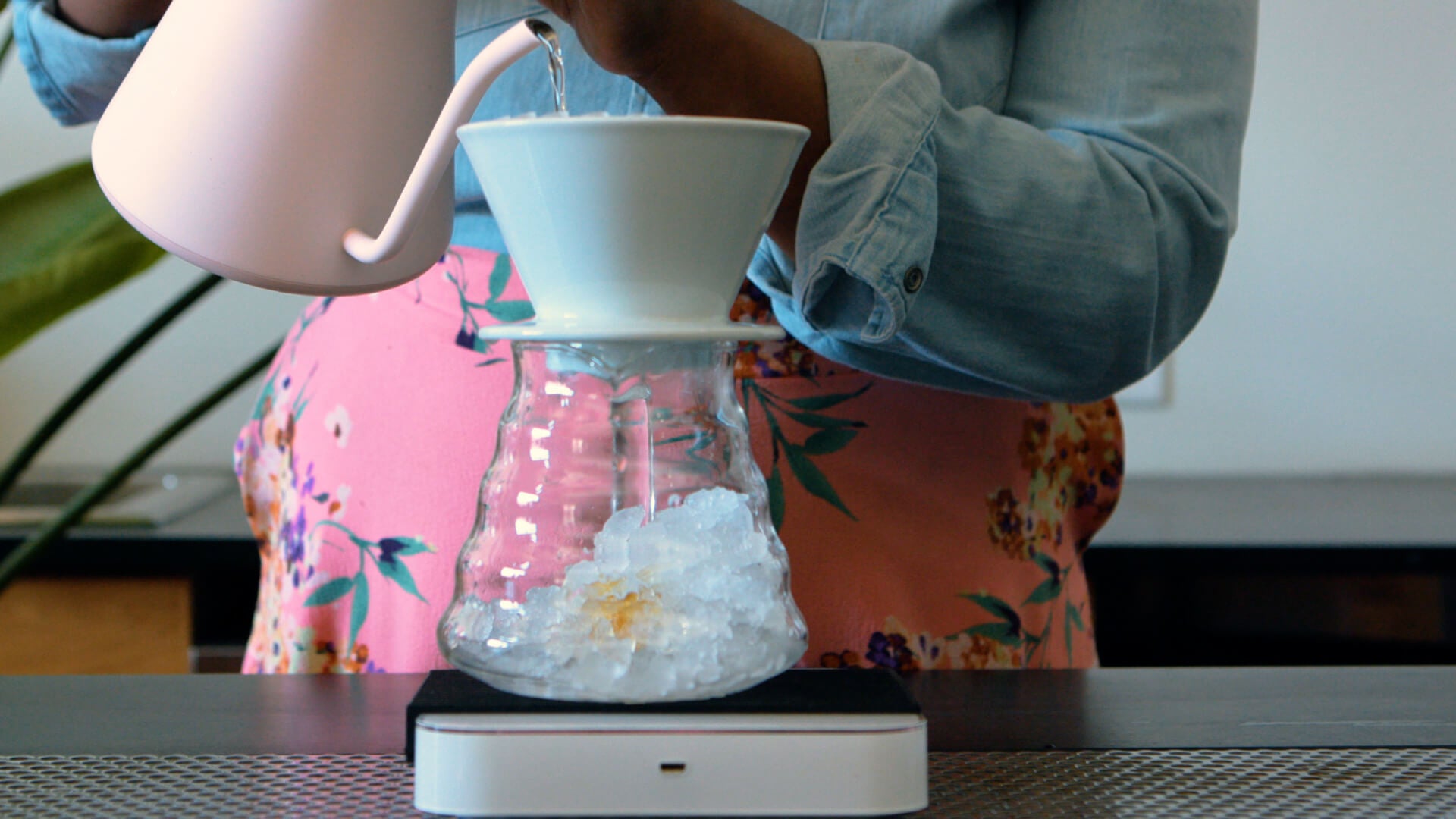
6: Begin Brewing
Wait 30 seconds and then pour water in a circular motion to 100g.
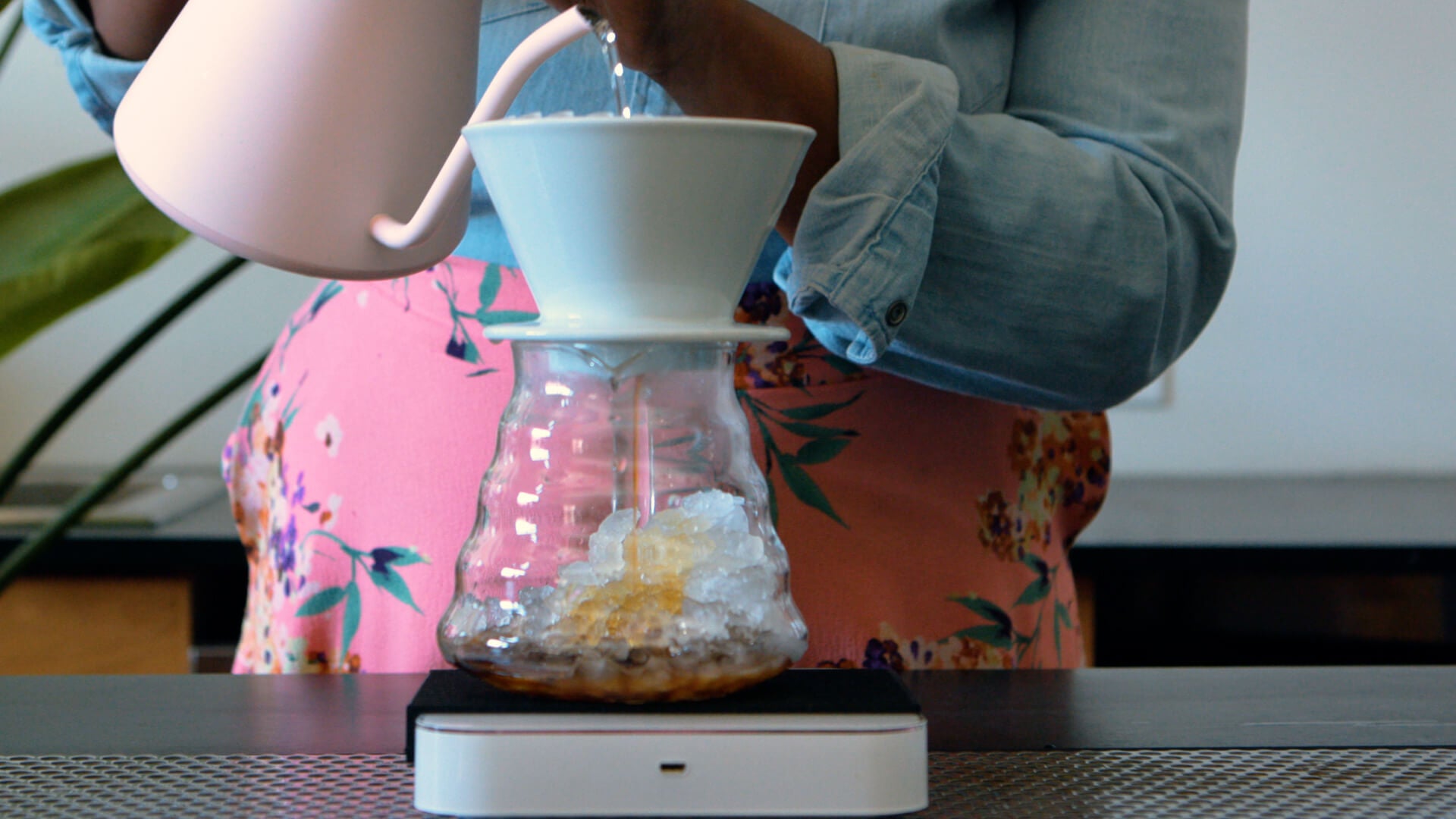
7: Pour Water
By 1:00, the water should have drained about one centimeter. Pour in a circular motion to 200g.
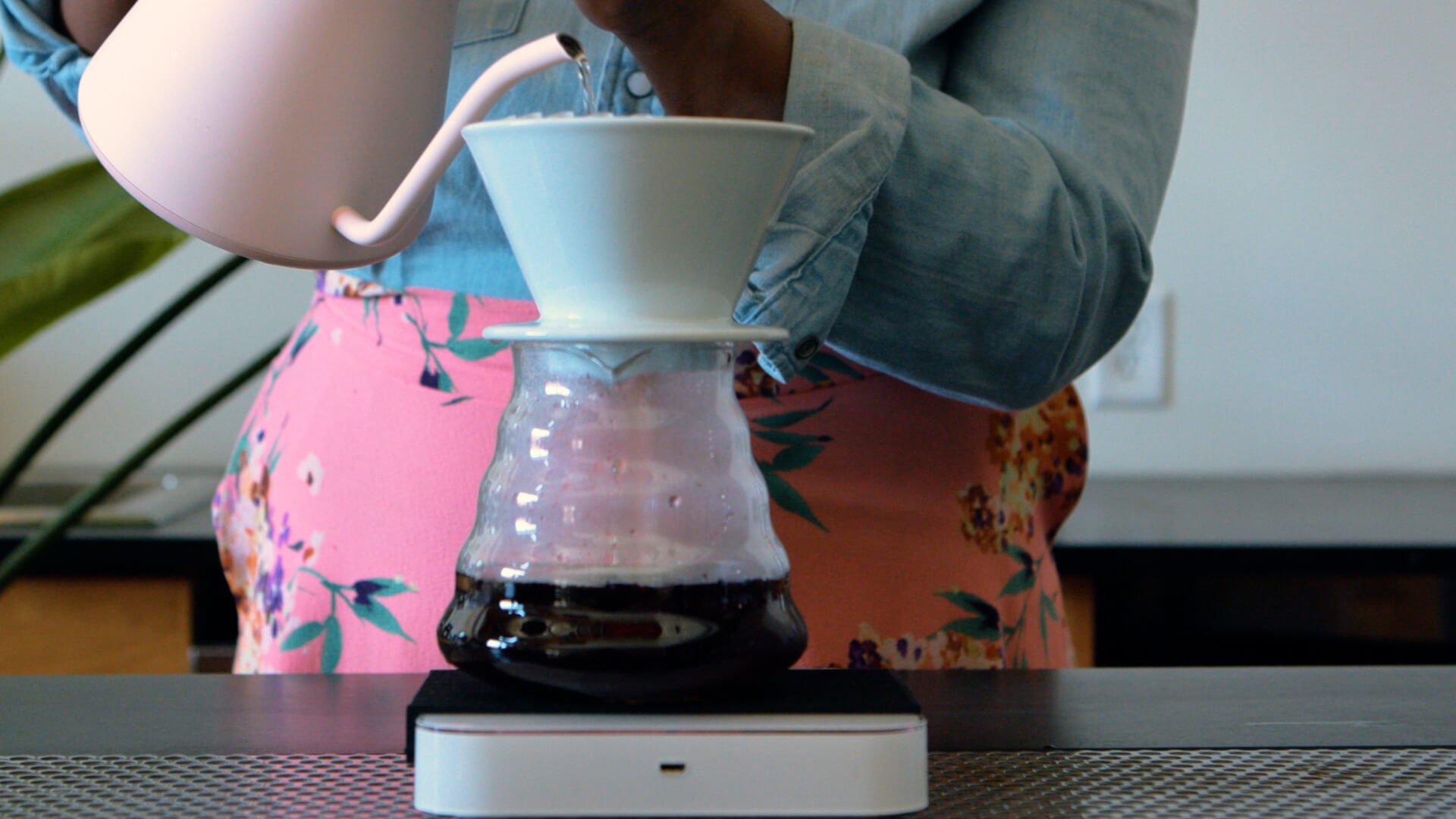
8: Repeat
Repeat this process every 30 seconds, or as the water drains a centimeter, pouring water in a circular pattern until reaching a total weight of 335g.
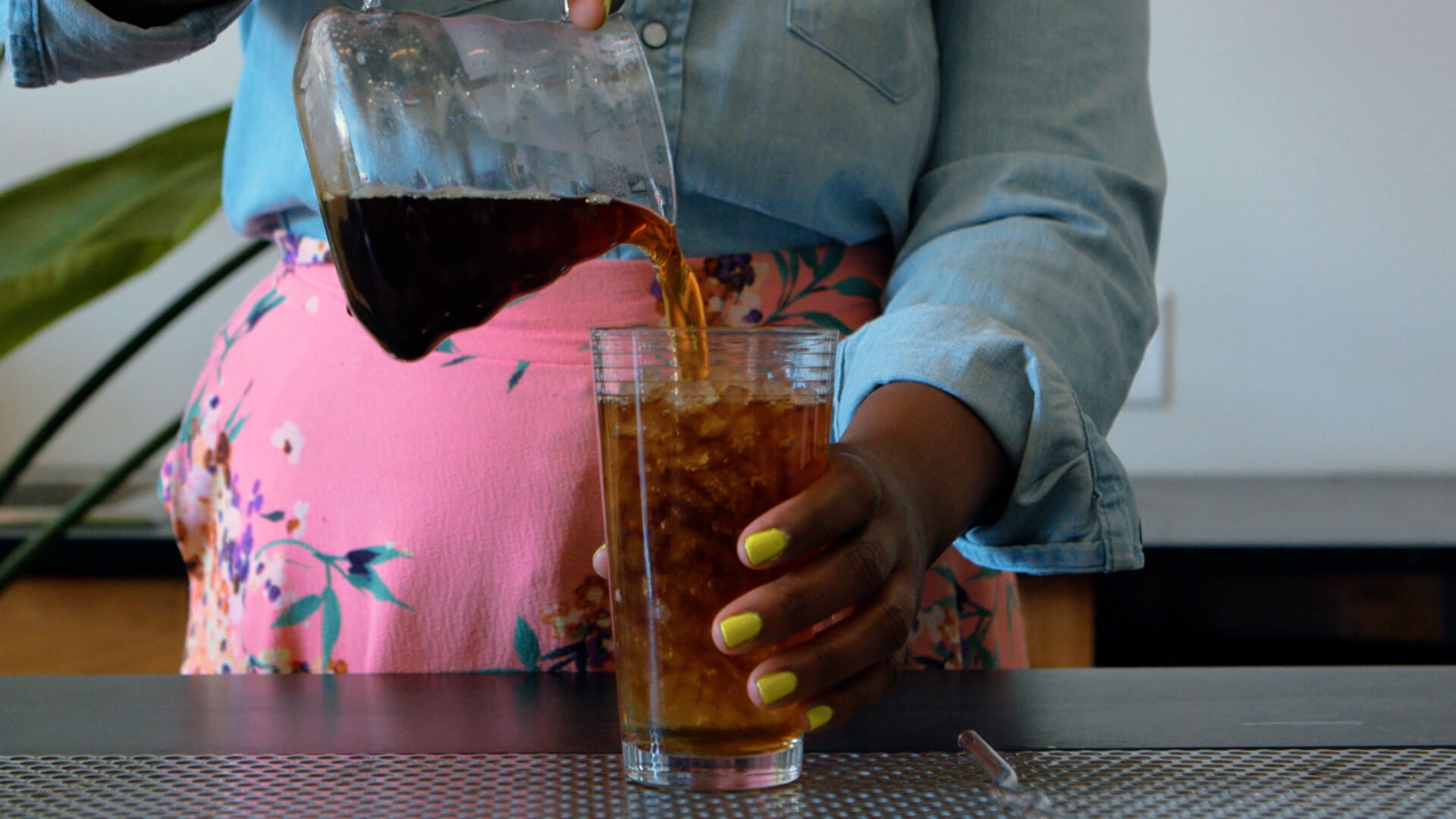
9: Enjoy!
Pour over more ice and enjoy!
-
![]()
Sustainably-Sourced
-
![]()
Quality-Focused
-
![]()
B Corp Certified
-
![]()
Transparently Traded
![]()
Sustainably-Sourced
![]()
Quality-Focused
![]()
B Corp Certified
![]()
Transparently Traded


